Investigative Stories
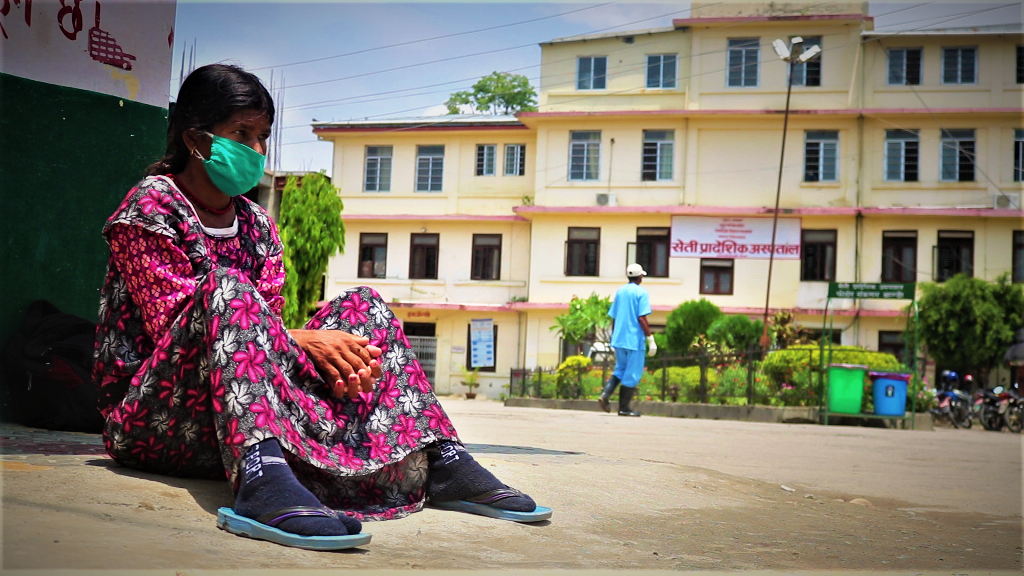
Nar Bahadur Sunar 61, of Mahakali Municipality-2, Kanchanpur, died on April 14. Sunar had been undergoing peritoneal dialysis for a decade. He couldn’t avail the service as he was stuck at home due to government enforced nationwide lockdown aimed at containing spread of coronavirus. His son, who works in Indian Army, used to send him essential medicine. But he was unable to send medicine as India too has enforced lockdown.
The family somehow supplied medicine from Kathmandu but the patient died a day after the medicine arrived home. “Maternal uncle had been deprived of replacing medicine of peritoneal dialysis since a week,” said the deceased’s nephew, Raj Kumar.
Another kidney patient Anirudra Chaudhary, 24, from Simari, Kanchanpur, is facing a life-and-death situation, most on weekend—Saturday and Sunday. He struggles to breath and legs are often swollen. After Nepal went into lockdown since March 22 Chaudhary has to face another challenge to save oneself from corona infection.
“Seeing his struggle to breathe on weekend is terrifying as if he might breathe his last in one of the Saturdays,” said his father Ghanshyam.Anirudra had been receiving dialysis service at Seti Provincial Hospital since September 2019 twice in a week. In the aftermath of lockdown the hospital, however, offers dialysis service only on Monday. Anirudra suffers the most two days ahead of scheduled dialysis day—Saturday and Sunday.
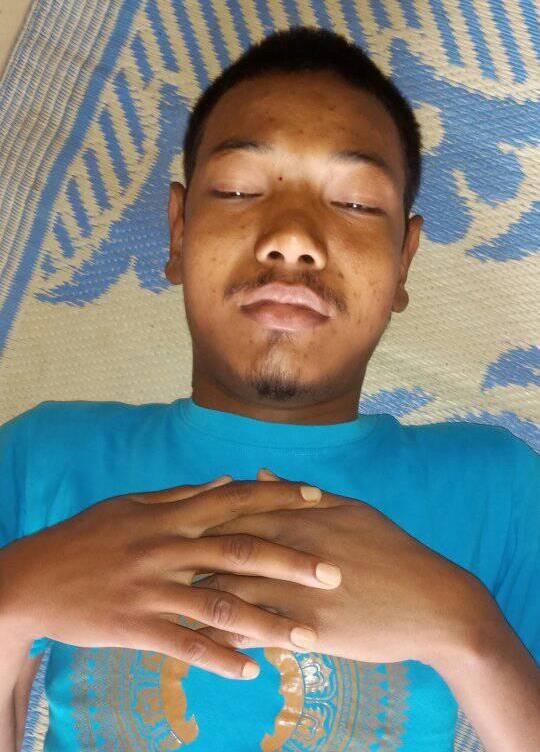
Ghanshyam complained hospital administration to admit him at the hospital for better care but they denied his plea.
Like thousands of kidney patients Anita Raskoti of Birendranagar, Surkhet, is also in a great despair. Raskoti had been receiving peritoneal dialysis service at home since four years. Nepal government used to provide essential medicine from Kathmandu once in a month.
Worried for her medicine she requested an ambulance to ferry her essential medicine from Kathmandu on April 14. But she received medicine only for 15 days due to shortage of medicine in market. “It’s been difficult even to walk around. Yet, we have received less medicine than what we used to get earlier.”
The couple is worried about how to arrange essential medicine.
The trouble of Laxman BK, a local of Parbat, who now lives in Pokhara, is no different from other kidney patients. BK had returned Nepal after his kidney stopped functioning while he was working in Saudi Arabia. Since then he has been receiving free dialysis service at Gandaki Regional Hospital.
But he has been facing difficulties to reach the hospital, which is five kilometer away from his shelter. “There is no public transport. I can’t afford ambulance so I walk two hours to get hospital,” he said.
Laxman has been facing difficulties to afford medicine. His wife had been somehow managing household expanses selling vegetables. “Due to lockdown she has not been able to continue her business. If existing situation continues how could I manage four to five thousand rupees for medicine each month.”The condition of Dut Bahadur BK of Pokhara, who has been receiving dialysis service at Gandaki Regional Hospital, is worse than other patients. His lower part of body is so stiff that he can’t walk on his own. And his family is facing problem to arrange transportation for his treatment.
“Kidney patients with poor economic condition are suffering the most due to lockdown,” said Suraj Sharma, secretary at Pokhara chapter of Kidney Victims’ Concerned Society.
Min Bahadur Bista, a local from Kanchanpur, has been receiving dialysis at Bhaktapur-based Shahid Dharmabhakta National Transplant Center since five years. He has shifted to a rented room in Bhaktapur to get three times free dialysis service in a week as prescribed by the doctors.
After dialysis, Bista needs a special vaccination called Erithroprotien that assists to continue blood production for kidney patients. He has been facing an acute shortage of the vaccine. Price of vaccine has been hiked by Rs 200 if he gets lucky to find it in medical store. “I’m facing difficult times than what I had experienced in devastating earthquake and blockade.”
Dilmaya Pun of Rapti Rural Municipality-5, Dang, must reach Community Dialysis Center of Lamahi, twice in a week for dialysis service. Her travel expense has significantly increased after lockdown.
“Before lockdown I used to pay just Rs 30 to get hospital. Now, I’m paying Rs 750 for ambulance in every ride,” she told over phone.
Hospitals downsized service
Most of kidney patients receiving dialysis service in Kathmandu hospitals have been facing transportation problem and their dialysis schedule is largely affected. Patients are deprived of getting full dialysis service.
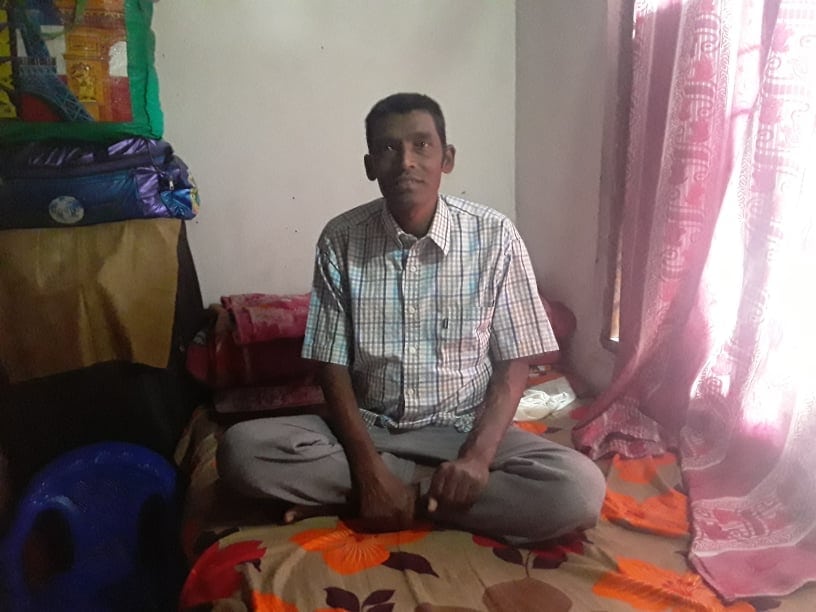
Dr. Dinesh Thapa, dialysis in-charge at Nidan Hospital, said dialysis services of those patients receiving the service thrice a week has now been reduced to twice a week. Dialysis schedule of those patients receiving the service twice in a week, however, remains unchanged. Before lockdown altogether 35 kidney patients were receiving dialysis service thrice a week.
“Hospitals have reduced service citing lack of health professionals and medical equipment,” said Balram Subedi, president of Kidney Victims’ Concerned Society Nepal.
Those receiving dialysis services in teaching hospitals of Kathmandu on their own are suffering because of lockdown.
The government was providing free dialysis services to kidney patients through a citizen medicine treatment fund even a decade ago since the new directive was introduced. But dialysis service is available only in major cities.
Only 57 hospitals from 20 districts are providing free dialysis service, as per details compiled by the Fund in 2019. Of them, three hospitals in Morang, Jumla and Hetauda have not yet started free dialysis service.
But hospitals have witnessed an acute shortage of medicines due to lockdown.
Menuka Moktan, a nursing officer at Medical Treatment of Deprived Citizen, said they have alerted Department of Drug Administration, after medicine scarcity was witnessed in market. “Of course, there was shortage of medicine in first two weeks of lockdown but we have now resumed the supply,” said Moktan.
In province 1, dialysis service is available only in the districts of Jhapa, Morang and Sunsari whereas Dhanusha, Saptari and Bara districts of province-2 have dialysis service. Kathmandu, Lalitpur, Bhaktapur, Makawanpur and Chitwan districts of Bagmati province have been providing dialysis service. Only two districts of Gandaki province—Kaski and Baglung-- have been providing dialysis service. Three districts of province 5-- Dang, Banke and Rupandehi—have free dialysis service. Karnali province has only dialysis station in Surkhet so is case of Sudurpachhim province.
Actual data is difficult to come by, but medical professionals estimate as many as 30,000 kidney patients are in Nepal. “Every year, three thousands new kidney patients are coming to hospital. But dialysis service is not arranged as per patient flow,” said nephrologist Santosh Gurung.
In Kathmandu, more than 1,000 kidney patients are waiting in queue to get dialysis service.
Half of the machines in Kathmandu
For kidney patients it was not easy to get service before lockdown as well. According to the Fund, half of total kidney dialysis designated 54 hospitals are in Kathmandu valley. There are 525 dialysis machines in the country. Of them, 276 machines are in Kathmandu.

It means 52 percent of kidney dialysis service is in Kathmandu. Only 48 percent of the total dialysis machines are in 17 districts outside Kathmandu. Some of the machines mentioned in the record are already out of service.
For example there are 10 machines at Seti Provincial Hospital even though the government record shows only eight machines. But only five are in operation. “Four are not functioning and one machine has been allotted for emergency patients,” said the hospital’s dialysis unit in-charge Deepak Bhatta.
In Province 1, altogether 52 machines are in operation, 48 in Province 2, 309 in Bagmati province, 39 in Gandaki province, 65 in Province 5, four in Karnali province and eight in Sudurpachhim province. Due to lack of adequate dialysis machines in their areas most kidney patients had been staying in Kathmandu for service. Their condition is now worse as vehicular movement has been banned.
Karnali and Sudhurpachhim provinces are far behind in terms of dialysis service. Only eight machines are arranged for 2.5 million populations Sudurpachhim province and four machines 1.5 million populations of Karnali.
Dr. KN Poudel, dialysis unit in-charge of Mid-Western Regional Hospital, said 28 kidney patients are receiving dialysis service from four machines in three shifts. “Initially we provided dialysis service to patiently only in a week for two weeks due to shortage of chemical. Supply is now Ok so service is now back to normalcy.”
Kidney patients from Karnali province are now referred to Nepalgunj or Kathmandu due to lack of machines. Since there very few machines are arranged out of Kathmandu kidney patients from remote villages like Karnali go to Kathmandu. The increased flow of patients complicates problem in Kathmandu too, said Dr. Poudel.
Desperate wait for service
Once kidney stops working patient has only two options—kidney transplant and follow dialysis twice a week. Dialysis keeps body in balance by removing waste, salt and water. As it takes four hours to complete dialysis process a machines can treat three kidney patients in a day even if it works in three shifts.
Since dialysis is required twice a week, an old patient returns to hospital three days after first dialysis. This keeps machines busy. In-charge Thapa says a machine can provide service to only nine patients even if it works in full swing. If ten machines are in any hospital and work in three shifts the hospital can conduct dialysis of 90 persons in a week, said Dr. Thapa.

In this given situation, 91th will have to wait for service indefinitely. The patient in waiting gets dialysis chances only if hospital arranges additional machines or some old patient transplants kidney, or patient dies.
Hospitals say they have been providing dialysis services for those who were already getting service in lockdown despite increasing flow of kidney patients.
“It was quite difficult to arrange dialysis initially so we reduced four-hour dialysis to three hours to manage dialysis,” said Dr. Thapa, “Patients are coming for dialysis amid all odds. It’s hard to care already registered patients. We are unable to take care of new patients.”
Kidney transplant is quite expensive even if someone is ready to donate kidney. It costs huge money to afford medicine even after transplant.
Referring kidney patients to another hospital is also not easy because all hospitals, mainly those run by the government, have long lists of patients waiting for dialysis.
Among free dialysis service providing government hospitals of Kathmandu, 170 kidney patients are waiting their turn at Sahid Dharmabhakta National Transplant Center, 130 at Bir Hospital and 216 at TU Teaching Hospital.
Considering flow of patients some private hospitals including Sumeru Hospital in Lalitpur have been operating machines in four shifts. Number of patients waiting for kidney patient has now reduced to less than a dozen after Nidan Hospital increased dialysis shifts.
Services like free dialysis and consulting of expert doctors are focused in Kathmandu. Many patients, who arrived Kathmandu hoping to get free service, are forced to pay hefty fee for private hospital after not getting government promised free service.
Those patients from Nepal southern plains bordering with India, who used to go to Indian hospitals for dialysis in normal days, are also suffering after both the countries shut porous border.
Mohan Joshi, from Bhrahmadev of Kanchanpur, a district bordering with India, is staying in Bareli of India for dialysis. “I’m staying at hospital after lockdown. It’s been hard to survive here as lockdown continues to extend. I’m running out of money,” Joshi told over phone.
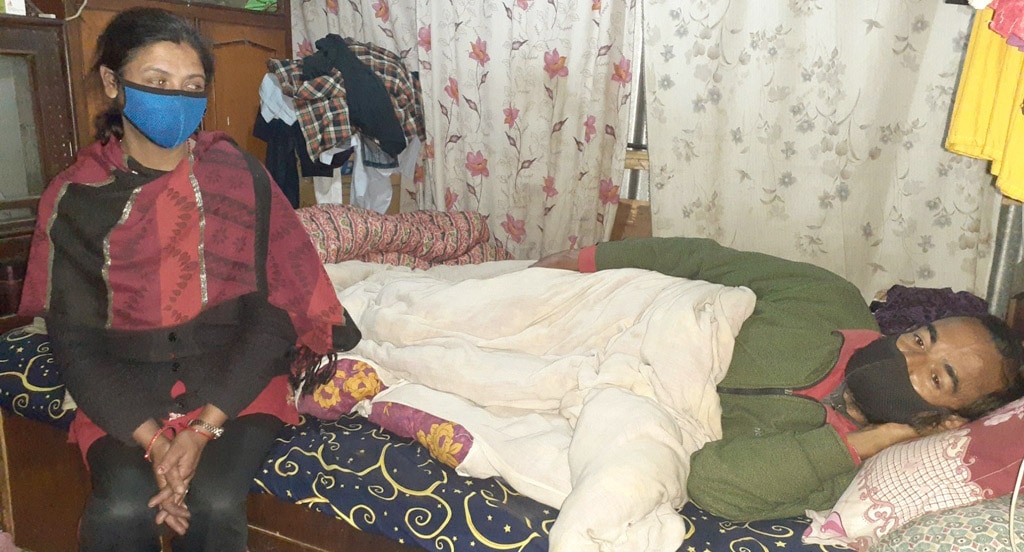
It’s now clear how many kidney patients have been receiving dialysis treatment abroad. President Subedi said those who registered names for free dialysis service are now out of contact. “Maybe some are languishing at home due to ailment or some might have already died,” said Subedi.
According to Subedi it’s difficult to get dialysis service even if kidney patient can afford private services after some private hospitals closed service due to lockdown. “We are trying to reach out kidney patients. It has been difficult due to lockdown.”
Most of kidney patients receiving dialysis service in Kathmandu’s private hospitals register their names in government hospitals hoping to get free service. They don’t remove name from service providing hospitals even after getting turn in new hospital.
For example Bhulla Paswan of Sarlahi, who is receiving free dialysis service at Venus Hospital, has registered him at Shahid Dharmabhakta Nationa Transplant Center. He has already experienced health complications after his dialysis period has been reduced to three hours from previous four. “It hard to get essential vaccine, said Bhulla.
Ahead of lockdown Kalu Lohar of Kaila was enrolled as dialysis service patient at Nidan Hospital. His name has been registered as 68th waiting patient of Shahid Dharmabhakta Hospital.
Likewise, Umeshlal Adhikari of Arghakhachi, transplanted new kidney. Now, he doesn’t he doesn’t need regular dialysis service. But Adhikari’s name is registered as 48th patient in waiting list of the Shabid Dharmabhakta Hospital.
It’s unknown how government reimburses expenses to private hospitals for free dialysis service. The government has been reimbursing expenses to them as per number of dialysis service receiving patients and service period.As private hospitals have also been providing free service there is big question about transparency of those hospitals. The government lacks any mechanism to make dialysis payment transparent. E-attendance of kidney patients may help to make dialysis service of private hospital more transparent.
Kidney patients receiving free dialysis service overcoming several hurdles are not free from problem. They continue to suffer. “Dialysis is free. Apart from dialysis we need to buy medicine. It’s too difficult to stay with caregiver and travel in lockdown,” said Min Bahadur Bista, who is staying at a rented room in Bhaktapur.
Jason Sigdel from Khotang, who has been taking care of his father undergoing kidney dialysis relatives of kidney patients faces financial and several problem while staying in Kathmandu. “For kidney patients lockdown has pushed them to a life-and-death situation. Poor kidney patients staying in rented room of Kathmandu are suffering the most,” she added, “Some are left without money while others are not getting essential medicine. House owners are not treating them well as they have frequently visit hospital for treatment.”
More Investigative Stories
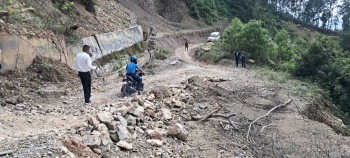
In Koshi Province, DPRs worth millions for projects never to be built
Many detailed project reports (DPRs) prepared by the Koshi provincial government at the cost of tens of millions are shelved....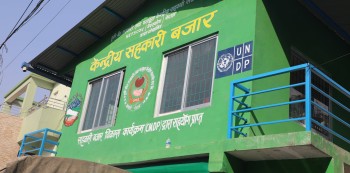
Uncooperative cooperatives
A Rs1 billion project aimed at promoting farmers failed due to mismanagement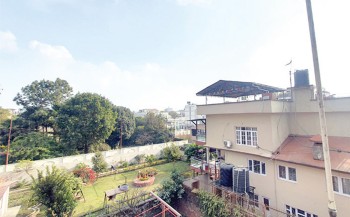

Comment Here